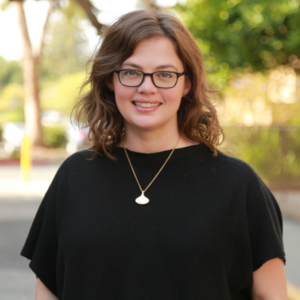SRI Education partnered with Alder Graduate School of Education to conduct a 5-year evaluation of their residency-based teacher preparation model in three new California regions.
Summary
In 2020, Alder Graduate School of Education (GSE) received a Teaching Quality Partnership (TQP) grant to expand their residency-based teacher preparation model into three new California partnership regions, including urban and rural locales. SRI Education partnered with Alder GSE as the evaluator for the TQP grant and is conducting a 5-year study of the implementation and outcomes of the residency program. The study began in 2020 and will conclude in 2025.
About the Alder Program
Alder GSE is a California-based teacher preparation program established in 2010 that aims to build deep partnerships with public K12 school systems to prepare a diverse pipeline of effective teachers that meet local hiring needs, particularly in hard-to-staff areas like math, science, and special education. As of 2020, Alder GSE had prepared over 500 teachers in 19 California local education agencies (LEAs) through their residency-based model.
A teacher residency, inspired by the medical residency model, is characterized by extended opportunities to practice concrete teaching skills in classrooms with students. A residency-based teacher preparation program typically requires its preservice teachers (called “residents”) to complete at least a semester and up to a year of classroom practice alongside a trained mentor-teacher. Residents are also given frequent opportunities to independently lead instruction and get feedback from their host teacher. While residencies are still gaining popularity and evidence of their effectiveness remains limited, prior research suggests that teaching residencies may produce better-prepared teachers that stay in the profession longer than teachers from traditional programs.
Key features of Alder’s 1-year residency model include:
- Selective admissions that draw from local talent and aim to increase the proportion of teachers from historically underrepresented groups
- Rigorous research-based coursework
- Training for mentor teachers and clinical faculty
- A year-long classroom placement.
Alder also works with partner LEAs to provide residents hired into the district with coaching and support during their first 2 years as teachers of record.
About SRI’s Evaluation
SRI’s evaluation will contribute to the broader literature regarding the effectiveness of residency programs by studying the implementation and outcomes of Alder’s program in the three new TQP regions. SRI will use a quasi-experimental matched comparison design to study the impact of Alder preparation on the achievement of students taught by Alder graduates and on Alder graduates’ teacher retention. This analytic approach will allow the research team to compare the achievement of students taught by Alder graduates, as well as retention of Alder graduates, to that of demographically similar peers within each partner region. SRI also measures implementation of the model by:
- Working with Alder to define what high-quality implementation of the program looks like
- Conducting annual interviews with Alder staff, district leaders from partner regions, and mentor teachers
- Administering annual surveys of school and district leaders from partner regions, mentor teachers, teacher residents, and alumni of the program
Learn more about SRI’s work studying teacher residency programs, including evaluations of other TQP grants, here.
Associated SRI team members
-

Douglas J. Gagnon
Principal Education Researcher, SRI Education
-

Candice Benge Steele
Education Researcher, SRI Education
-

Paul J. Burkander
Senior Education Researcher, SRI Education



